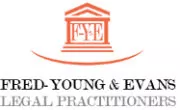The Child's Right Act, 2003 provides for adoption of a child in Nigeria. An application for adoption is made to the High (Family) Court accompanied with the following documents;
(a) Where the applicant is a married couple, their marriage certificate or a sworn declaration of marriage;
(b) The birth certificate or sworn declaration of age of each applicant;
(c) 2 passport photographs of each applicant;
(d) A medical certificate of the fitness of the applicant from a Government hospital; and
(e) Such other documents, requirements and information as the Court may require for the purposes of the adoption.
In practice, the Court prefers that an applicant must have fulfilled the condition precedent at the Child Welfare Department and obtain a report stating that the applicant is a proper person to adopt the child. The report would accompany the application for adoption.
Upon receipt of an application for adoption, the Court shall order an investigation to be conducted by child development officers or a supervision officer or such other persons as the Court may determine, to enable the Court to assess the suitability of the applicant as an adopter and of the child to be adopted.
The Court shall, in reaching a decision relating to the adoption of a child, have regard to all the circumstances, first consideration being given to the need to safeguard and promote the welfare and the best interest of the child throughout the childhood of that child and ascertaining, as far as practicable, the wishes and feelings of the child regarding the decision and giving due consideration to those wishes and feelings, having regard to the age and understanding of the child.
The content of this article is intended to provide a general guide to the subject matter. Specialist advice should be sought about your specific circumstances.

